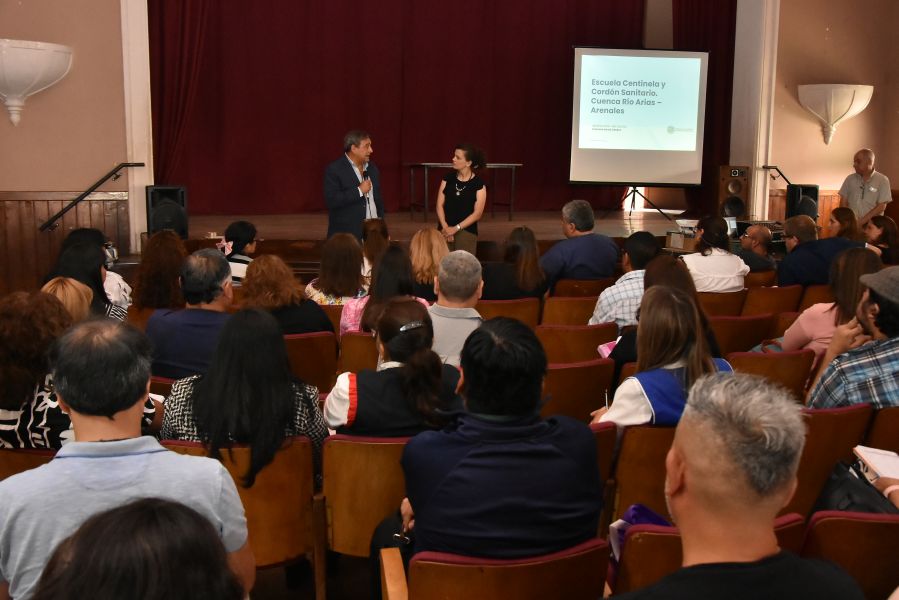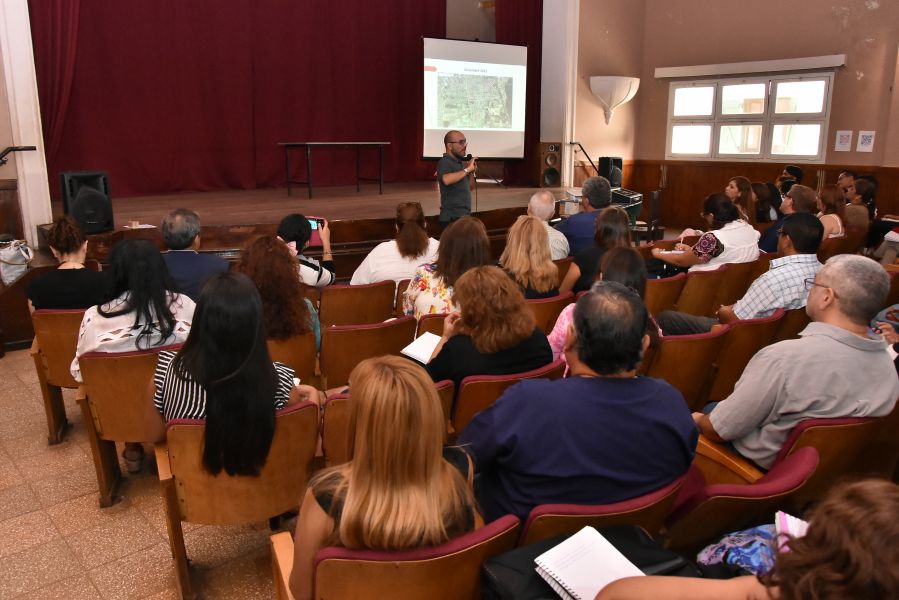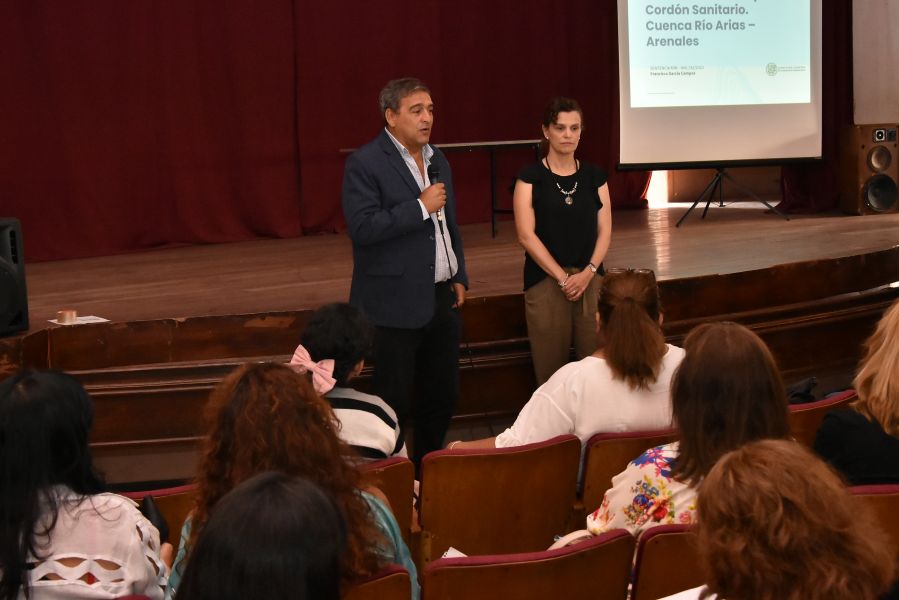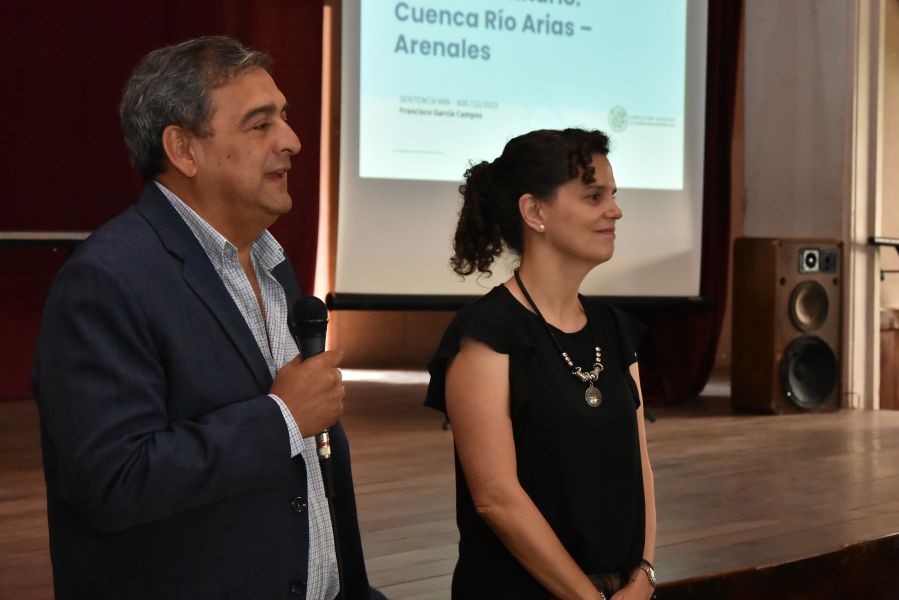At home school, public health ministers, Federico Mangione education, science and technology, Christina FioreHe led the opening of the workshop where the proposal “Guardian Schools within the framework of the Sanitary Enclave Strategy for the Arias-Arenales River Basins” was presented, where waterborne disease surveillance was implemented within the framework of the implementation of the minimum provision – 8000.732/23.

The aim of the training was to create a space for the exchange of knowledge related to water-borne diseases for regional supervisors and directors of the district Ministry of Education, Culture, Science and Technology at the levels of public and private administration, and – to strengthen the educational work of students at different levels in order to form guard schools that constitute a space for knowledge exchange. About a specific problem, considering the teacher as a fundamental pillar for transferring knowledge to children and adolescents. To generate a ripple effect within the family and society.
In this context, Minister Mangione highlighted the work of educators and health workers to work with the community and educate them about the epidemiological reality regarding food and water-borne diseases in order to prevent them.
He pointed out that when the water of the Arenales River was found to be unfit for use, a series of prevention and promotion measures were implemented. “We were able to detect the presence of contamination of some foods, and some adhering vegetables.” The official pointed out that “the preventive campaigns included washing vegetables, cooking, washing hands, and handling food.”
While Fiore explained that the ranger school training “aims to raise awareness among children at all levels of caring for the environment, and caring for the Arenales River, to avoid diseases.” It is very important to raise awareness among children, who are sometimes the ones who show us the way.
The two officials agreed that joint action between health and education, through health agents and teachers at all levels, is the way to “be able to reverse this very complex situation that has consequences for public health.”


About the workshop
During the training organized by the Epidemiology Coordination Directorate, led by Francisco García Campos, the epidemiological situation in the province with regard to waterborne diseases was introduced, taking into account the characteristics of the diseases that allow the identification of forms of their prevention, as well as their development. Strategies to enhance community participation.
A diagnosis of the status of the area of responsibility and the corresponding coverage of the cordon of health was also presented, the role of guard schools in the cordon of health strategy for the Arias Arenales River Basin, the importance of monitoring running water, diseases transmitted by natural waters, about typhoid fever and paratyphoid fever, about diseases of health concern, zoonotic diseases: Hantavirus and leptospirosis.
Finally, the role of teachers and health workers and the implementation of curriculum content to prevent and control these diseases was highlighted.





